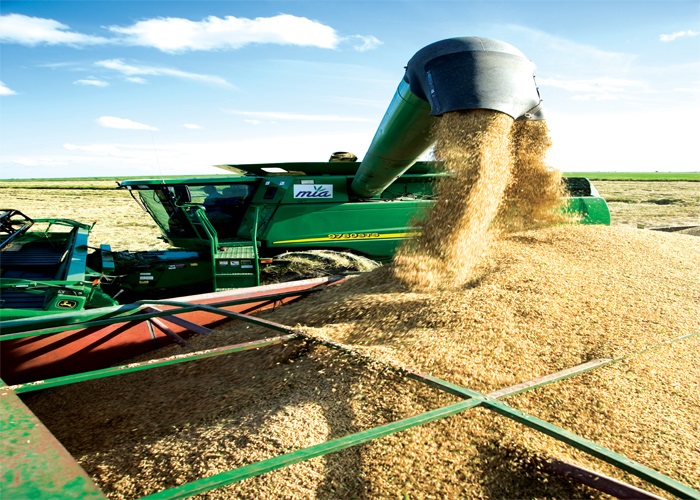Mozambique: Cotton price set at 22 meticais per kilo - Watch
Mozambique to lower corporate tax rate for large farms to 10%

FILE - For illustration purposes only. [File photo: Notícias]
Mozambique intends to reduce the current 32% Corporate Income Tax (IRPC) rate for large farms to 10%, in order to stimulate production.
According to the Economic Recovery and Growth Plan (PRECE), “a reduction in taxes would not represent a significant loss of revenue for the State, but rather an incentive for more competitive investments and formalisation of businesses in the sector”.
This is because “the fiscal contribution of this sector represents less than 2% of the total revenue mobilised by the State”, reads the document, approved by the government and released by the Ministry of Finance.
The measure covers large commercial operations in the agriculture, livestock, hunting, forestry and fishing sectors, while the IRPC rate for small commercial farms will be reduced from 5% for five years.
“Agriculture is considered the foundation of Mozambique’s development. Despite this, its contribution to development remains limited, notwithstanding its significant contribution to GDP [Gross Domestic Product] and employment of most of the productive workforce,” the Mozambican government acknowledges.
Within the framework of “promoting competitiveness” in the sector, the government also intends to “reduce the withholding tax charged to foreign entities providing services to domestic agricultural companies from 20% to 10%”, in addition to “eliminating the 20% withholding on interest from external financing intended for agricultural projects”.
Other measures foreseen in the PRECE include tax incentives for new investments in “key sectors” over the next five years.
“These tax incentives cover new private initiatives in the agriculture, agro-processing, manufacturing, tourism, and urban transport sectors, aiming to expand installed production capacity. The measure seeks to increase commercial farms from the current approximately 1% to 10% by 2035,” the government’s plan states.
These incentives “consist of the accelerated depreciation of invested capital to half the period established in the tax code” and cover “investments in facilities and equipment related to the productive activity of companies, provided they result in the creation of at least 20 additional permanent jobs”.
A reduction in the power tax for the agricultural sector and an exemption from VAT on agricultural production and irrigation inputs are also planned.
The government also intends to “facilitate access to agricultural inputs for family-sector producers”, particularly families affected “by adverse climatic events in the northern part of the country”, through the creation of “subsidised financing lines to facilitate access to quality inputs for producers”.
“This action will contribute to improving productivity per hectare of food products,” the PRECE notes, also foreseeing the introduction of an agricultural insurance programme “to protect small farmers against losses caused by extreme climatic events, with subsidies covering up to 70% of the insurance cost”, to be implemented by the Ministry of Economy through the state insurer Emose, in partnership with the World Bank.
According to the PRECE, the Mozambican government plans to mobilise US$2.75 billion (€2.37 billion) in the short and medium term to stimulate the economy, particularly in response to climate change and political instability.
Mozambique has more than 4.5 million farms, the “vast majority” of which are small-scale, operating on less than two hectares, according to government data.












Leave a Reply
Be the First to Comment!
You must be logged in to post a comment.
You must be logged in to post a comment.